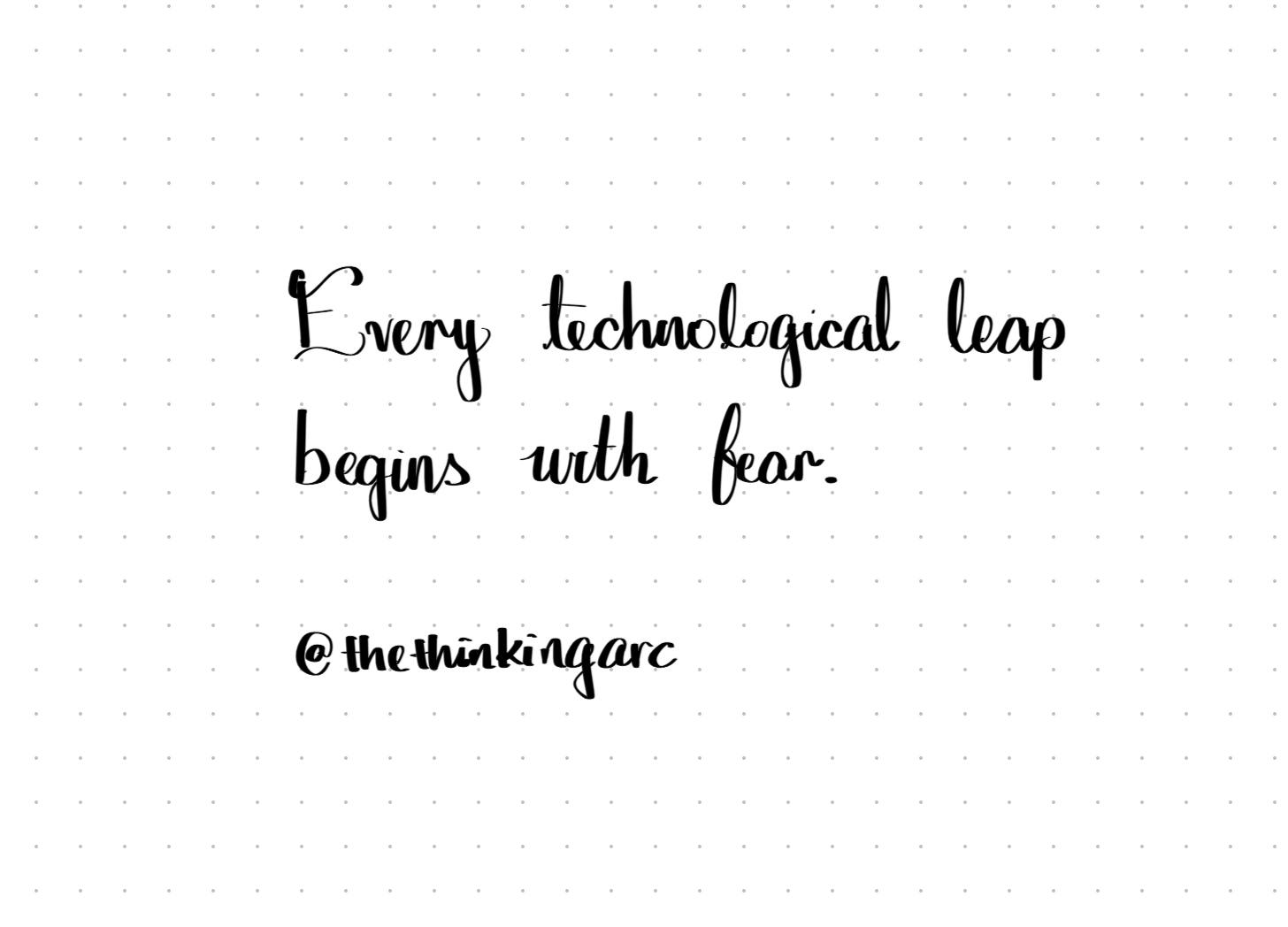I instinctively pulled out my phone to calculate the change after buying a coffee. It's one of the many small moments in modern life that captures a simple truth: every piece of technology we create makes our lives easier while eroding a once essential skill.
Machines reduced physical labor, but we're now facing what experts call an "epidemic of inactivity". We invented calculators and Google Maps, then lost our fluency with mental math and navigation.
As a result of these losses, each technology (from cars to social media) has faced its own versions of anti-tech sentiment to varying degrees. But all of these objections eventually faded away, and technology prevailed.
Because ultimately, people got the same payoff with each progression: it freed up our time and energy, allowing us to channel them to more complex tasks.
While some would say that AI anxiety is just a replay of past versions of technophobia, the magnitude of this specific leap seems to veer closer to a doomsday scenario with each LLM update.
The over-reaching nature of AI into the realm of human thought has created an unmatched anxiety about what we're losing and where we're going.
If we lose thought, what is there to move on to next?
Our two greatest fears about AI are:
- Losing what makes us human
Earlier tools outsourced discrete tasks: physical effort, mental calculations, and navigation skills.
But AI isn't just handling tasks. We're on the path to outsourcing consciousness itself.
We can now delegate not just what we do, but how we think, what we create, and even what we decide. When we keep outsourcing our thinking, are we eventually weeding out one of the most fundamental parts of being human?
- What's there for us to move on to next?
When machines took over physical labor, it helped us redirect our energy toward mental work. When computers handled basic calculations or writing, we could focus on higher-order creative or strategic thinking.
But when algorithms are now mimicking the most complex aspects of human cognition (like critical thinking and creativity), what higher ground is there for us to move to?
The same fear on repeat
We look at AI now and say the fear is finally legitimate. That this time “it's different”, because there's truly nothing more complex for us to progress to. But that's what we also said at every other major technological intersection we stood at.
When the car or the internet first appeared, no one foresaw the world it would create. The benefits only look obvious now because of hindsight.
But at the time, we were all just as scared and worried about whether things were moving too fast, changing too much, or heading towards a path where humanity would lose something too valuable.
But instead of giving in to that fear and shunning technology, what did we do? We still went ahead and stumbled through, misused, and made mistakes with each technology.
Because it’s only through this messy process of tinkering, failing, and getting back up, that we were able to discover the unexpected benefits.
Pruning is part of progress
It’s possible with AI that we might once again enter a kind of intellectual “dark age”, where our reliance on it grows and skills atrophy.
But what if we saw these periods of decline as simply being part of a larger process of growth?
Perhaps it is only by losing our present "advanced” levels of thinking, that we can usher in a new age of even more complex thought.
When we can outsource simple analyses or evaluations to AI, we can redirect our energy toward discernment, judgment, wisdom, ethical reasoning, or some cognitive level we didn't even know that our minds could be elevated to.
Fear is our signal to be brave
Fear is neither good nor bad, but it is a signal.
We can use it as a signal to withdraw or as a signal to be brave, open our minds to possibility, mess up, get back up, and ultimately push ourselves toward new frontiers of thought we can’t yet picture.
Hi! I'm Dawn, and I write about thinking well in the age of AI. Subscribe to my newsletter if you'd like to read more.


